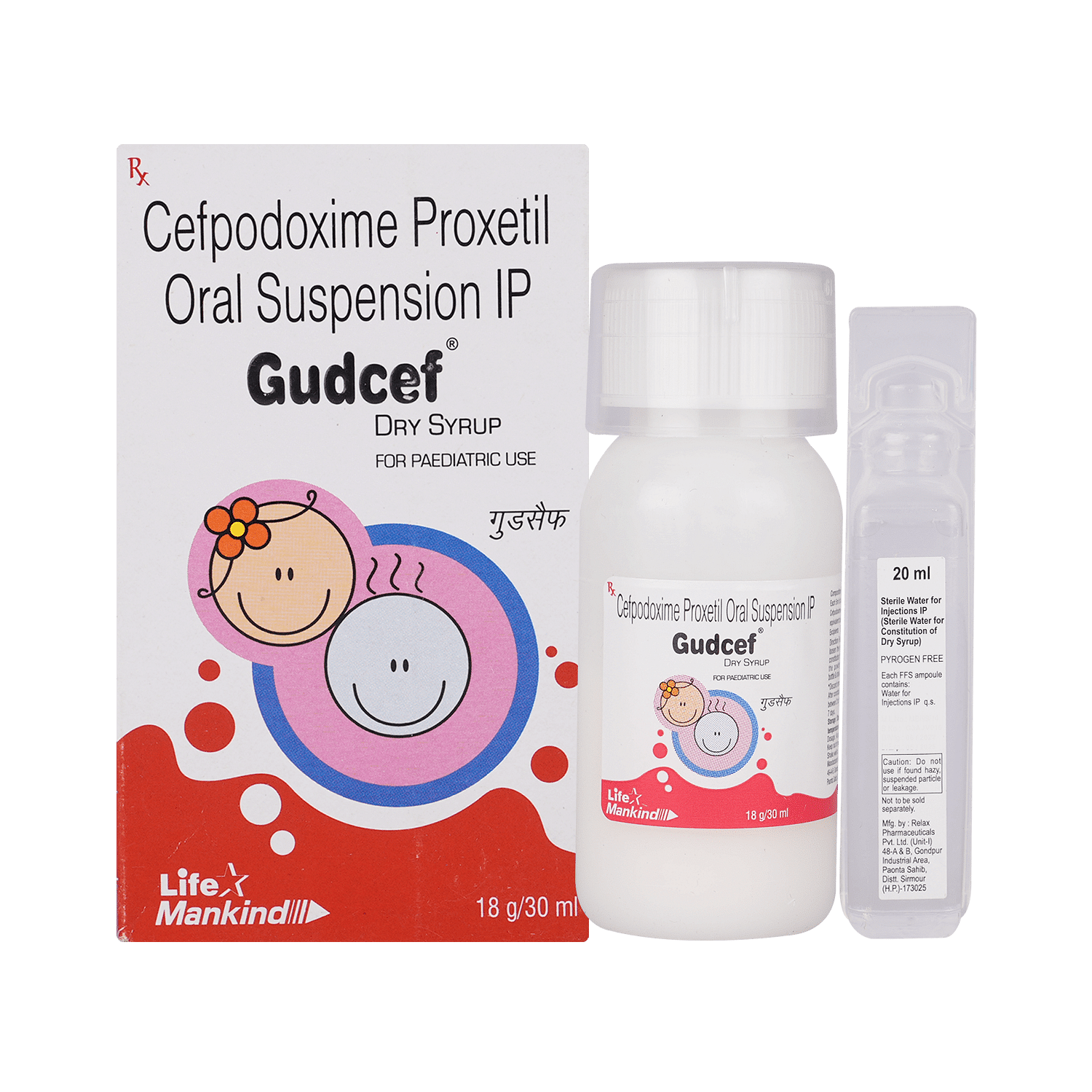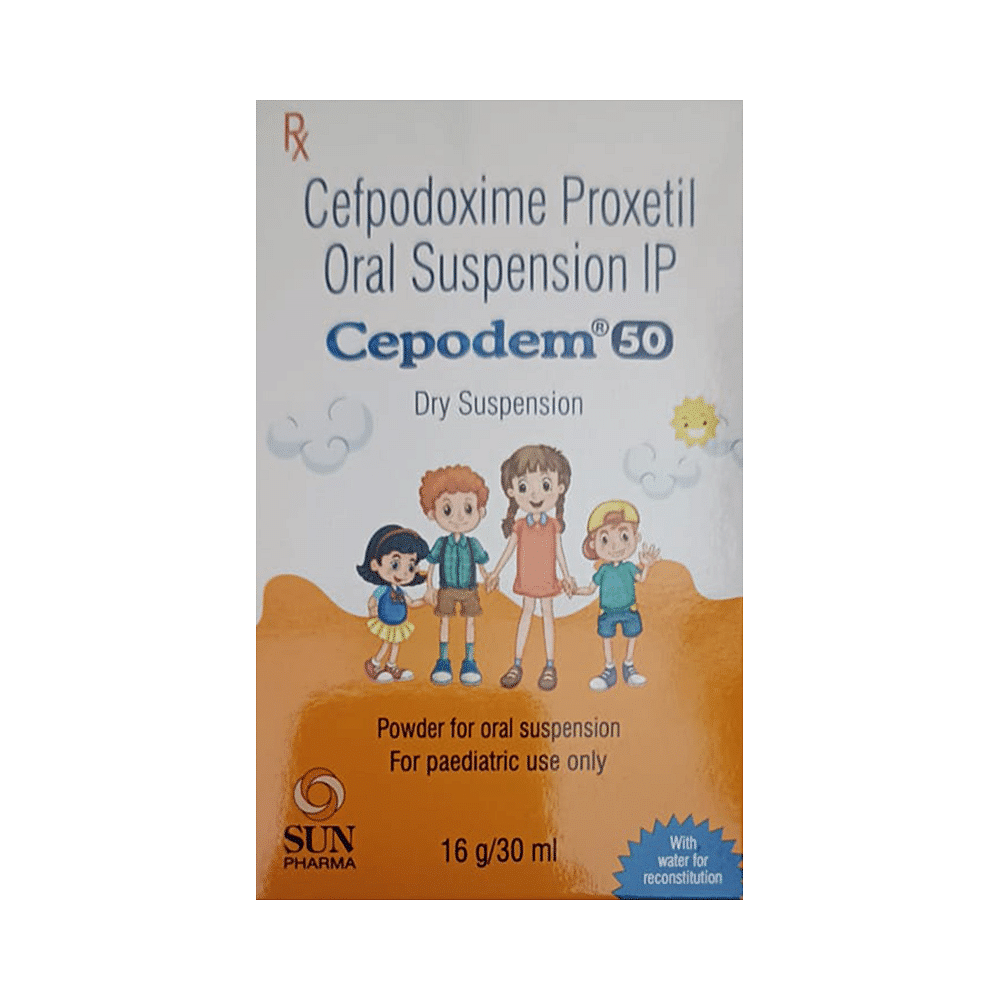
Migcef-Kid Dry Syrup
Manufacturer
Soinsvie Pharmacia Pvt Ltd
Salt Composition
Cefpodoxime Proxetil (50mg)
Key Information
Short Description
Migcef-Kid Dry Syrup is an antibiotic medicine used to treat a wide range of bacterial infections in children, including ear, eye, nose, throat, lung, skin, gastrointestinal tract, and urinary tract infections, as well as typhoid fever.
Dosage Form
Oral Suspension
Introduction
Migcef-Kid Dry Syrup is an antibiotic medicine commonly given to children for the treatment of a wide range of bacterial infections. It is effective in treating infections targeting the ears, eyes, nose, throat, lungs, skin, gastrointestinal tract, and urinary tract. It is also used to treat typhoid fever in children and adolescents.
Directions for Use
Give this medicine with food to avoid an upset stomach. Encourage your child to drink plenty of water in case diarrhea develops as a side effect.
How it works
Migcef-Kid Dry Syrup is an antibiotic that works by preventing the formation of the bacterial protective covering (cell wall) which is essential for the survival of the bacteria. By doing so, this medicine stops the infection-causing bacteria from growing further and prevents the infection from spreading without making the bacteria resistant to further treatment.
Quick Tips
Your child must complete the entire course of antibiotics. Stopping too soon may cause the bacteria to multiply again or become resistant or cause another infection. Give this medicine with food to avoid an upset stomach. Encourage your child to drink plenty of water in case diarrhea develops as a side effect. Conditions like common cold and flu are caused by viruses. Never use this medicine for such conditions. Only give Migcef-Kid Dry Syrup to your child for their current infection. Never save medicine for future illnesses.
Related Medicines

Gudcef Dry Syrup

Cepodem 50 Dry Suspension

Ampiod Dry Syrup

Podif 50 Dry Syrup

Podef Dry Syrup

Cefomet 50 Dry Syrup

Relpod Oral Suspension

Noxetil 50 Dry Syrup

Dokim 50 Dry Syrup

Mypod Dry Syrup
Frequently asked questions
What if I accidentally give my child too much of Migcef-Kid Dry Syrup?
Giving more than the recommended dose of Migcef-Kid Dry Syrup is unlikely to cause serious harm. However, contact a doctor immediately if you think your child may have taken too much. Overdose could lead to unwanted side effects or worsen their condition.
What are some potential serious side effects of Migcef-Kid Dry Syrup?
Serious side effects of this medicine include prolonged vomiting, kidney damage, allergic reactions (allergies), diarrhea, and severe gastrointestinal infections. Always consult your child's doctor in case of these symptoms.
Can other medicines be given at the same time as Migcef-Kid Dry Syrup?
Migcef-Kid Dry Syrup may interact with some other medications or substances. Before starting Migcef-Kid Dry Syrup, discuss all medications your child is taking with their doctor to prevent possible interactions. It's also recommended to consult with the doctor before giving any medicine to a child.
Can I get my child vaccinated while on treatment with Migcef-Kid Dry Syrup?
Antibiotics are not typically associated with vaccinations, and they don't usually cause adverse reactions in children who have recently received them. However, it's crucial to wait for your child to fully recover from the illness before administering a vaccine. Speak with their doctor after the child is feeling better, and then schedule the vaccination.
What lab tests may my child undergo while taking Migcef-Kid Dry Syrup on a long-term basis?
A doctor may recommend periodic kidney function tests and liver function tests to monitor your child's overall health during long-term treatment with Migcef-Kid Dry Syrup.
My child is experiencing yellow-green mucus coming out of their nose. Is this a sign of a bacterial infection?
Yellow or green mucus in the nose doesn't always indicate a bacterial infection. This is normal for some children when they have a common cold, and symptoms often last for 7 to 10 days.
My child has a sore throat and ear infection. Can I give antibiotics?
No, antibiotics are not necessary for viral infections like sore throats or ear infections. Antibiotics are only prescribed for bacterial infections, and they can be harmful when used against viruses.
Does a common cold always lead to a secondary bacterial infection? When should I start antibiotics to prevent this?
Most colds (viral) don't trigger secondary bacterial infections. Using antibiotics for a viral infection can be ineffective and may cause side effects. If your child has symptoms of a cold, such as runny nose, cough, sore throat, pain, and discharge, consult with their doctor to understand the best course of action.
Can Migcef-Kid Dry Syrup impact my child's digestive system?
The use of antibiotics can often cause stomach upset or diarrhea in children. When antibiotics are administered, they can affect the balance of beneficial bacteria in a child’s gut. This effect can increase the risk of complications such as other infections.
Can Migcef-Kid Dry Syrup lead to bacterial resistance?
Irregular antibiotic use, repeated use, and misuse of Migcef-Kid Dry Syrup can lead to antibiotic resistance. This means the bacteria may become immune to these antibiotics.


